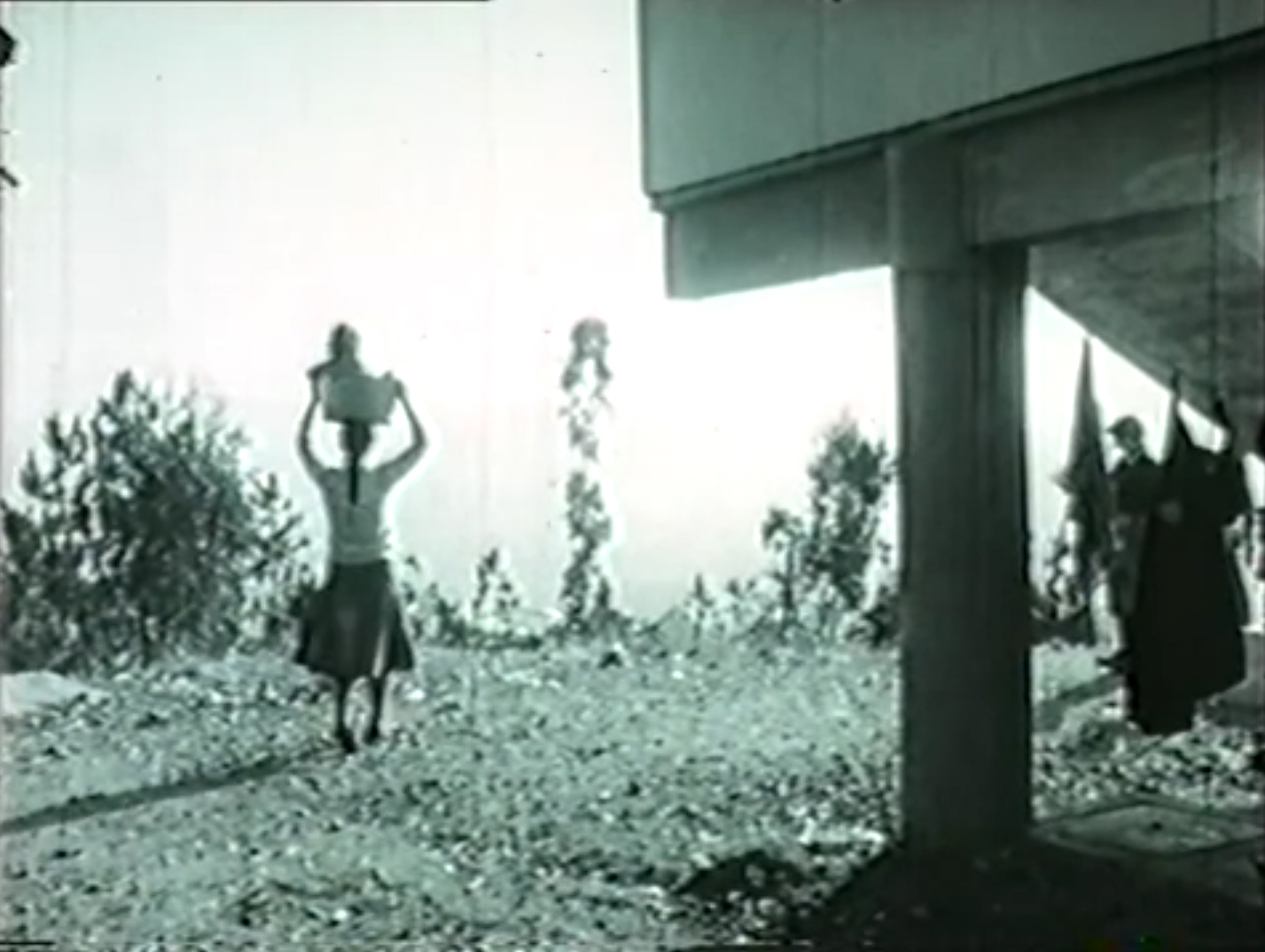


We’ve reached the end of our micro-cycle of documentary film
The City Won, the City Lost
with the screening of
Gypsies Without Ballads
, a film shot by Llorenç Soler in 1976 that shows the construction project of a group of social houses for a Gypsy community in the surroundings of Pontevedra.
It will be next Thursday, April 24 at 7 p.m. at the
Institut Bellvitge
, and Juana Fernández and Mercedes Gómez, representatives of
Lachó Bají Calí
(Romani cultural association of Gornal) and
Santiago Cirugeda
(architect) will join us in the debate after the screening.
Gypsies Without Ballads is perhaps one of the few audiovisual documents that offers a representation of the ways of life and the situation of gypsies in the urban peripheries of the 70s; precisely when many of the informal settlements they inhabited were demolished and replaced by housing estates in which they were relocated. The lack of services and the serious urban deficiencies of these neighborhoods were corrected thanks to the neighborhood mobilization; this is, very schematically, the story about many neighborhoods of the urban periphery such as Bellvitge. What role did ‘minority’ groups such as gypsies play in this historical period? Did it have any particularity? Was it relevant? How did the forms of social discrimination to which gypsy people have traditionally been subjected influence it? What seems clear is that we lack representations and narratives that help us answer these questions.
On the other hand, we can ask ourselves what was the role of architects in all this matter and how the precepts of rationalism for social housing, quite widespread at that time among the profession, were altered by social and economic processes that surpassed them. The experience of Santiago Cirugeda in the village of
The City is Ours
, a film that we could see in the second session of the cycle.
The film forum cycle The city won, the city lost, is part of the work processes of the project
Espai 14-15
, is linked to the exhibition
Double authorization
by Lola Lasurt in the
Espai 13
of the
Fundació Joan Miró
within the framework of the cycle Preventive archeology curated by Oriol Fontdevila.